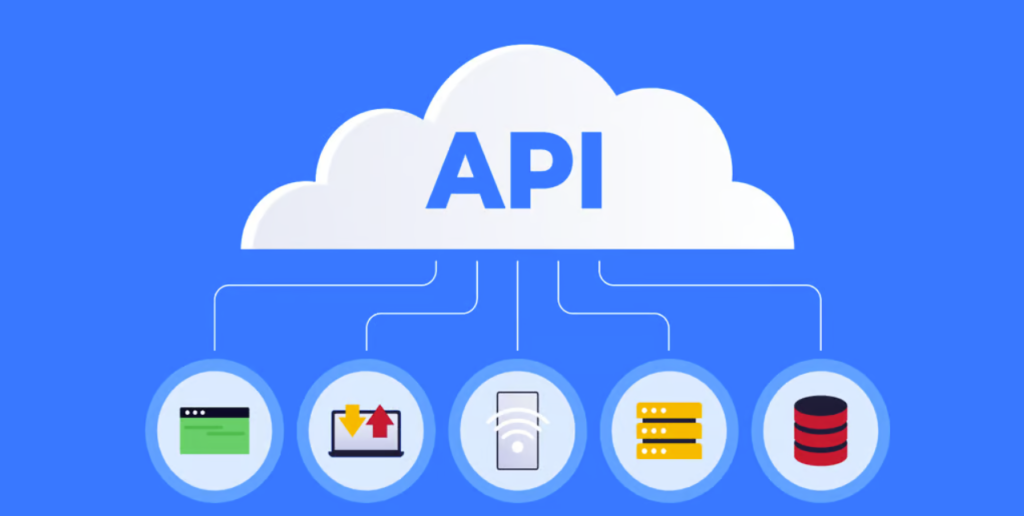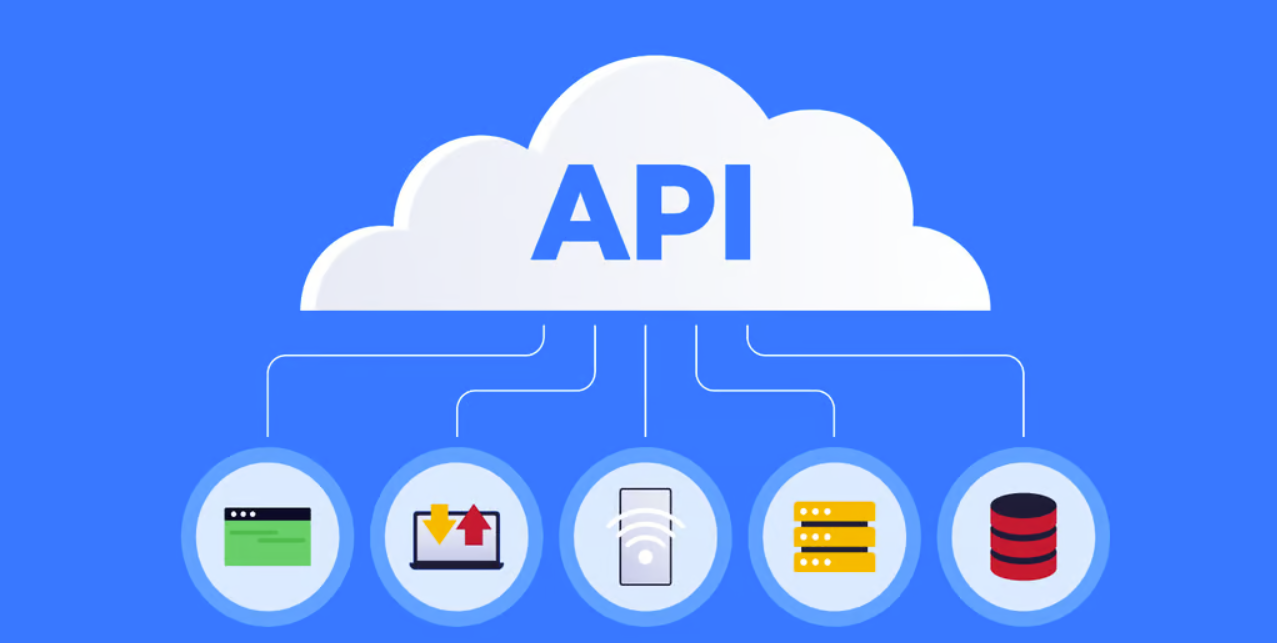Let’s talk about APIs and Why is it Important for Your Business.
In today’s digital landscape, businesses rely on interconnected systems to deliver seamless experiences to customers and optimize internal operations. At the heart of this connectivity lies the API, or Application Programming Interface. In this post, we’ll break down what APIs are, give real-world examples, discuss popular API protocols, and explain why APIs are vital to your company’s success and how they can drive profits.

What is an API?
An API (Application Programming Interface) is a set of rules and definitions that allows different software applications to communicate with each other. It acts as a bridge that enables one system to interact with another, sharing data and services without needing to understand the underlying code.
Imagine an API as a waiter in a restaurant: you, the customer (one system), request a meal from the kitchen (another system). The waiter (API) communicates your request to the kitchen and brings the meal back to you. The process is seamless and efficient without you needing to know how the kitchen works.
Real-World API Examples
- Google Maps API: Many apps like Uber, Airbnb, and delivery services use the Google Maps API to show routes and locations in real-time, embedding the map interface directly into their apps.
- PayPal API: E-commerce platforms integrate PayPal to allow users to make payments without leaving the site. The API handles all payment transactions securely behind the scenes.
- Twitter API: Businesses can use the Twitter API to automatically post tweets, retrieve user data, or monitor specific hashtags.
- Stripe API: An API that enables businesses to manage payments online. Companies like Amazon, Shopify, and Lyft use Stripe’s API for their payment infrastructure.
Popular API Protocols
APIs can use various protocols to communicate between systems. Here are a few commonly used ones:
- REST (Representational State Transfer):
- What It Is: REST is a lightweight, scalable API protocol that works over HTTP. It’s widely used for web services, where resources are accessed and manipulated via URLs.
- Common Use: Most modern APIs (e.g., Facebook, Google, Twitter) use REST because of its simplicity and scalability.
- SOAP (Simple Object Access Protocol):
- What It Is: SOAP is a protocol for sending structured information in the form of XML messages. It’s more rigid and secure compared to REST.
- Common Use: SOAP is still used in enterprises requiring high-security standards, such as banking services (e.g., payment gateways).
- GraphQL:
- What It Is: A query language for APIs developed by Facebook, allowing clients to request only the data they need.
- Common Use: Facebook and GitHub use GraphQL to reduce the amount of data transferred in their APIs, making interactions faster.
- gRPC:
- What It Is: A high-performance, open-source framework for connecting services across platforms using HTTP/2. It supports multiple programming languages.
- Common Use: Google developed gRPC for internal and external services. It’s ideal for microservices architectures due to its efficiency and speed.
Why Are APIs Important to Your Company?
APIs have become fundamental to modern business strategies. Here’s why:
- Increased Efficiency: APIs enable systems to communicate and share data without manual intervention. This leads to faster and more reliable operations. Whether it’s automating customer onboarding, integrating payment systems, or managing inventories, APIs streamline processes, reducing errors and saving time.
- Scalability: APIs allow businesses to grow by integrating new services and tools without overhauling existing systems. If you’re scaling your operations or adopting new technologies, APIs ensure a smooth transition by connecting new software to existing infrastructure.
- Improved Customer Experience: APIs allow businesses to offer a more personalized and seamless customer experience. For example, integrating real-time tracking services or instant payment processing can make a big difference in customer satisfaction.
- Data Monetization: APIs provide opportunities for businesses to create new revenue streams. For instance, companies can offer API-as-a-Service, allowing external developers or businesses to access and use your data and services. Companies like Amazon Web Services (AWS) profit heavily from offering API-based cloud services.
How Your Company Can Profit from APIs
APIs not only streamline operations but also open doors to profitability in several ways:
- APIs for Customer Integrations: Your business can offer APIs to third-party companies to integrate with your services. For example, if you’re in retail, you can provide an API for other companies to pull product data from your platform.
- API as a Product: Many tech companies create APIs as products that they sell to developers or businesses. Twilio, for example, offers APIs that allow companies to send text messages, make phone calls, and more, all through their platform. You can also monetize your APIs by offering premium features at different pricing tiers.
- Drive Innovation: By integrating with third-party services via APIs, you can quickly adopt new technologies or features without having to build them in-house. For example, by using the Google Maps API, businesses can add advanced geolocation features without needing a full development team.
- API-Based Business Models: APIs enable new business models such as SaaS (Software as a Service). SaaS companies often leverage APIs to offer additional functionality, enhance customer value, and increase recurring revenue. You can build API-based products and services that cater to other businesses’ needs, leading to long-term profitability.
Need Help with API Strategy?
Integrating APIs into your business operations can lead to enormous growth and innovation, but it can also be complex. That’s where Luatron comes in. We specialize in API development, MuleSoft services, AWS, and IoT integration. Whether you need to build APIs from scratch, integrate new systems, or scale existing ones, we can help ensure your architecture is efficient, secure, and scalable.
Visit us at Luatron.com to learn how we can help you take advantage of the full power of APIs and unlock new business opportunities!

Leave a Reply